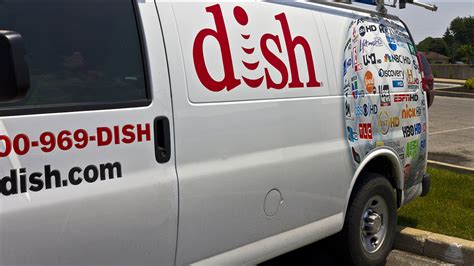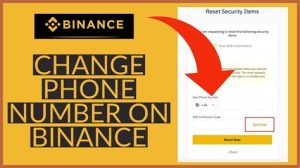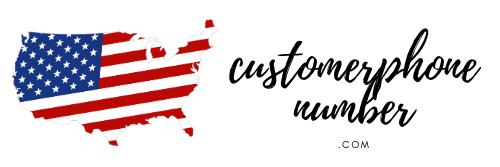
Explore how dish companies ensure customer phone numbers are genuine, overcoming challenges with advanced technologies and industry-standard authentication strategies. In an age where connectivity is king, dish companies remain steadfast in ensuring the security and authenticity of their customer base. Verifying phone numbers is not just a step towards personalized user experiences; it’s a pivotal element in safeguarding against fraud and maintaining service integrity.
In this blog post, we delve into the meticulous world of phone number verification within the satellite service industry. Join us as we explore the stringent industry standards set for phone verification, unravel the inherent challenges that companies face, and dissect the sophisticated strategies implemented for authenticating phone numbers. We’ll also discuss why phone verification is of paramount importance in the operations of dish companies and how emerging technologies are revolutionizing verification processes. Prepare to gain insight into the behind-the-scenes operations that ensure the phone number associated with your dish account is as reliable as the service you enjoy.
Industry Standards for Phone Verification
Industry standards for phone verification processes are crucial for ensuring security and reliability across various sectors that require user authentication. In the era where digital identity verification is paramount, phone verification has emerged as a frontline defense against fraud and identity theft. These standards often encapsulate stringent requirements for data privacy, user consent, and authentication strength, employing multi-factor processes where a phone number is one of the key components.
One of the pivotal industry standards is the adherence to regulations such as the General Data Protection Regulation (GDPR) for European users, and the Telephone Consumer Protection Act (TCPA) in the United States, which dictate how organizations must handle the verification process without compromising personal data. This is in addition to using secure tokens and one-time passwords (OTPs) which are becoming commonplace in the phone verification landscape. These tokens are often sent via SMS or voice calls, though recent standards are inclining towards more secure methods due to the vulnerability of SMS to interception.
To strengthen the security measures, various entities are turning towards the implementation of Secure Telephone Identity Revisited (STIR) and Signature-based Handling of Asserted information using toKENs (SHAKEN) protocol standards. These are designed to combat caller ID spoofing and to ensure that the phone verification calls are indeed originating from legitimate and authenticated sources. The incorporation of STIR/SHAKEN protocols is rapidly becoming a benchmark for service providers seeking to meet industry standards in phone verification.
In addition to these protocol standards, the use of robust Application Programming Interfaces (APIs) that facilitate seamless integration of phone verification services into existing systems has become a baseline standard. These APIs are constructed to cater not only to the ease of integration but also to the stringent security requirements that are expected of them, ensuring that user data is transmitted securely and is resilient to cyber-attacks.
With the ever-increasing reliance on phones as a means for verification, industry standards are continually being updated to reflect the latest technological advancements and threat landscapes. Companies are, therefore, obliged to stay abreast of these developments, implementing and updating their phone verification strategies to protect their customers effectively while staying compliant with the evolving regulations and best practices.
Challenges in Phone Number Verification
Confronting the challenges in phone number verification is a crucial task for entities requiring robust security measures and accurate user identification. As technology evolves, fraudsters find sophisticated methods to bypass traditional verification processes, compelling organizations to adapt and fortify their verification systems. This necessitates a careful examination of the obstacles these organizations face in maintaining the integrity of their verification protocols.
One significant hurdle in this arena is the necessity to distinguish between genuine users and malicious actors. With the rise of virtual phone number services and burner phones, verifying the authenticity of a user has become increasingly complicated. Companies must devise strategies that can effectively discern the legitimacy of a phone number without placing undue burden on legitimate customers, all whilst protecting their systems from being exploited by nefarious entities.
Furthermore, the global nature of business today means that phone number verification systems must be adept at handling a wide array of international number formats, which can vary greatly from one country to another. The complexity of aligning diverse telecommunications regulations and ensuring compliance poses a considerable challenge for these verification systems, as they strive to deliver a seamless and secure experience for users around the world.

Another critical aspect that dish companies and other entities have to contend with is the real-time verification of phone numbers. Real-time verification demands that systems are capable of quickly and efficiently verifying numbers without causing delays, which could prove detrimental to user experience. The balance between speed and accuracy is a delicate one, and falling short on either end of the spectrum can lead to either increased fraud or frustrated users.
In conclusion, tackling the trials presented by phone number verification is an ongoing struggle for dish companies and other organizations that rely on this critical security measure. By understanding and addressing these challenges head-on, companies can stay one step ahead of fraudsters, safeguard their customers, and ensure the overall security and trustworthiness of their verification processes.
Strategies for Authenticating Phone Numbers
To effectively deploy strategies for authenticating phone numbers, organizations need to understand the pivotal role these strategies play in safeguarding their operations and customer relationships. One of the key methods employed in phone number authentication is the use of two-factor authentication (2FA), where a unique, time-sensitive verification code is sent via SMS to the user’s phone, thereby providing an additional layer of security beyond just the conventional username and password.
Another advanced technique involves the integration of intelligent risk-based authentication, which takes into account various parameters such as user behavior, location data, and device identification to dynamically assess the risk level of an authentication request. In circumstances where anomalies are detected, such system may prompt additional verification to ensure that the phone number authentication is indeed legitimate and is not being compromised.
Moreover, forwarding-thinking organizations are increasingly utilizing biometrics as part of their phone verification strategy. Through fingerprint scanners, facial recognition, or voice authentication integrated with the user’s phone, a higher level of accuracy in verifying the phone number owner’s identity is achieved, thereby significantly reducing the likelihood of fraudulent activities.
In addition, the implementation of database checks against authoritative and up-to-date data sources ensures that the phone number provided is not only valid but also currently in service and registered to the individual attempting to verify. This validation process can deter instances of data entry errors, recycling of old numbers, and more sophisticated forms of fraud involving phone number spoofing.
Ultimately, the adoption of a multi-faceted approach that leverages both traditional and cutting-edge phone number verification technologies is a testament to the commitment of dish companies in maintaining robust security measures and trust with their customer base. As technology continues to evolve, so too will the strategies for authenticating phone numbers, underscoring the importance for businesses to stay abreast with the latest methods to protect their interests and those of their clients.
Importance of Phone Verification in Dish Companies
In an era where the spectrum of communication services has expanded immensely, the importance of phone verification within dish companies cannot be overstated enough; the practice essentially acts as a critical safeguard, ensuring that subscribers’ services are not only secure but also impeccably personalized to their individual preferences and requirements.
Why does a seemingly mundane task like phone verification hold such weight in the context of dish providers? The answer lies in the layers of complexity involved in managing vast customer databases, where the accuracy of customer information is paramount – as any mistake or oversight could lead to service disruptions or, even worse, fraud; thus, implementing robust phone verification processes is pivotal in maintaining the integrity of customer accounts.
Furthermore, in an industry that thrives on the currency of trust between service providers and their consumers, the act of verifying a phone number offers an unspoken reassurance that the companies are taking proactive measures to protect their patrons’ personal data – a seemingly small yet significant gesture that enhances customer loyalty and confidence in the brand’s commitment to security.
Additionally, amidst a competitive landscape, dish companies that have harnessed the power of comprehensive phone verification systems gain a formidable edge – not only do they minimize the risk of erroneous customer outreach campaigns, but they also cement their reputation as reliable service providers, an accolade that in today’s choice-rich market, plays a decisive role in customer retention and acquisition.
Therefore, it can be concluded that within the intricate web of services provided by dish companies, the practice of robust phone number verification emerges not just as a technical necessity, but as a cornerstone in crafting a user experience that is both seamless and secure, ultimately contributing to the sustainable growth and success of such businesses in the frenetic realm of digital communications.
New Technologies in Phone Number Verification
The landscape of phone number verification is undergoing a significant transformation with the advent of new technologies that enhance the process’s efficiency and security. In the realm of protecting user data and ensuring seamless user experiences, the incorporation of artificial intelligence and machine learning algorithms stands out as a game-changer. These cutting-edge solutions are capable of detecting and thwarting fraudulent activities with increased precision, drastically reducing the margin for error that previously existed.

Moreover, another innovative technique making waves is the use of biometric authentication, which can involve voice recognition or fingerprint scanning to confirm the identity of the individual attempting to verify a phone number. Such an approach is not only securing the verification process by adding an extra layer of validation but is also creating a more personalized and user-friendly experience. By leveraging biometrics, companies are able to build a more robust defense against identity theft and phone spoofing attempts.
Blockchain technology is also being adapted to revolutionize phone number verification by providing a decentralized and transparent approach to securing user data. With its inherent capability to prevent unauthorized access and manipulation, blockchain creates an immutable record of verifications that can instill a greater level of trust in the process. Implementing blockchain can vastly improve data integrity and pave the way for highly secure phone verification practices that deter even the most sophisticated fraudsters.
Lastly, the use of two-factor authentication (2FA) and multi-factor authentication (MFA) has become an integral part of modern phone verification strategies, wherein users not only provide a phone number but must also confirm their identity through additional verification methods. This may involve receiving and entering a code sent to their device or responding to a push notification within a secure app. By integrating several methods of verification, dish companies and beyond are substantially minimizing the risk posed by compromised credentials, mitigating potential financial losses and protecting customer reputation.
As we look to the future, the potential integration of Internet of Things (IoT) devices for verification purposes represents yet another exciting frontier for this domain. The vast network of connected devices can offer new ways to authenticate phone numbers, possibly by interacting with smart devices that users have around them. As these new technologies in phone number verification continue to evolve, one thing remains clear: the reliance on traditional methods is swiftly giving way to more sophisticated, seamless, and secure verification solutions that will redefine the landscape for years to come.
Frequently Asked Questions
Why do dish companies need to verify phone numbers?
Dish companies need to verify phone numbers to ensure they are in touch with legitimate customers, prevent fraud, and provide a more personalized and secure service experience.
What methods do dish companies use to verify phone numbers?
Dish companies typically use methods like sending a unique code via SMS or automated voice call, which the customer then enters on the company’s website or conveys to a representative to confirm their number.
Is phone number verification a one-time process for dish company customers?
Phone number verification is usually a one-time process for new customers or when updating account details, but companies may occasionally re-verify numbers for security purposes or when suspecting fraudulent activities.
What happens if a customer cannot verify their phone number?
If a customer cannot verify their phone number, they may be unable to access certain services or make changes to their account until they can provide verification, or they might need to contact customer support for further assistance.
Do dish companies share verified phone numbers with third parties?
Dish companies typically do not share verified phone numbers with third parties without the customer’s consent unless required by law or necessary for service provisioning and partnerships.
How do dish companies protect the privacy of verified phone numbers?
Dish companies protect privacy by adhering to telecommunications regulations, data protection laws, implementing strict security measures, and allowing customers to opt out of promotional communications.
Can customers choose not to verify their phone number with a dish company?
While customers can choose not to verify their phone numbers, this may limit their ability to use all services offered by the dish company, and it might also affect the level of customer support they can receive.

Leave a Reply